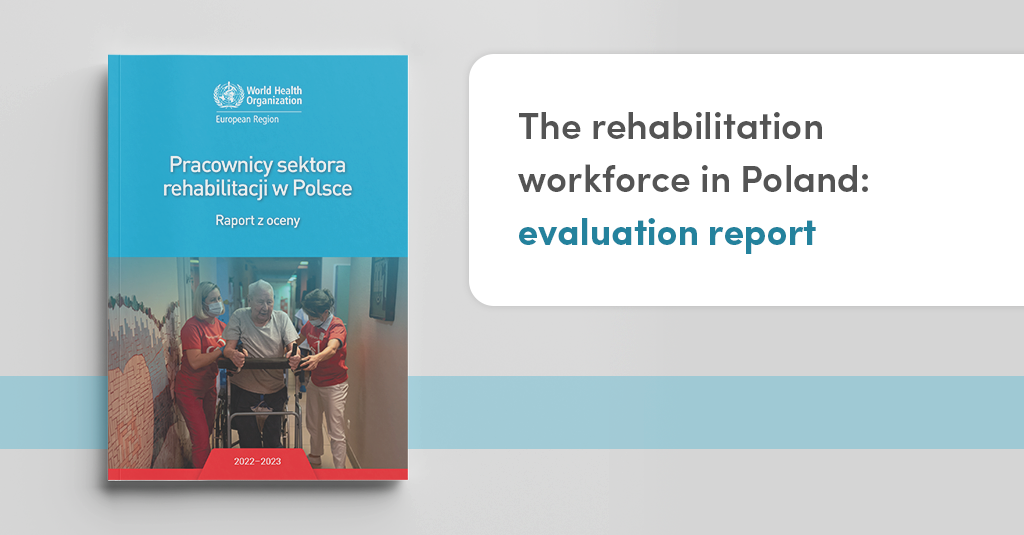Rehabilitation workers are professionals who ensure the best possible level of functioning of patients. They play an extremely important role in the health care system, influencing the quality and efficiency of care. However, for this to be at the highest possible level, the health care system must employ employees who, both in terms of number and competences, will be able to meet the needs of the population. Their situation is comprehensively presented in the publication “Employees of the rehabilitation sector – assessment report”.
The report contains answers to many questions, e.g.:
· who deals with rehabilitation in Poland and do we have enough employees in this sector?
· do physiotherapists, medical rehabilitation specialists, occupational therapists, speech therapists, clinical psychologists, prosthetists and orthotists have appropriate competences?
· where do they work and are they available?
· are they well educated and can provide help to all those in need?
· what areas require immediate change and which are working well?
· what does the future of the broadly understood rehabilitation sector look like, and how will it develop in the coming years?
Download the report in Polish: Rehabilitation sector workers in Poland: assessment report, 2022–2023 (who.int)
Download the report in English: The rehabilitation workforce in Poland: evaluation report, 2022–2023 (who.int)
What kind of project is this?
In cooperation with WHO, Poland has been carrying out a comprehensive evaluation of rehabilitation staff since August 2021 in order to develop a national action plan. The National Chamber of Physiotherapists was the main partner in the project evaluation, and a group of experienced physiotherapists actively participated in the work of the project team.
The evaluation was carried out in accordance with the WHO GROWE (Guide for Rehabilitation Workforce Evaluation) methodology and was a pilot project, supported and financed by the WHO Department of Rehabilitation. Six identified professional groups – medical rehabilitation specialists, physiotherapists, occupational therapists, speech therapists, clinical psychologists and orthotists and prosthetists of the musculoskeletal system – were subjected to a thorough analysis. In addition to the National Chamber of Physiotherapists, key institutions were invited to participate in the project, including representatives of the Ministry of Health, the Ministry of Education and Science, the Sejm and Senate Health Committee, the National Health Fund, the Social Insurance Institution, the Patient Ombudsman, the National Institute of Public Health PZH- National Research Institute, the State Fund for the Rehabilitation of Disabled Persons, representatives of the academic community, as well as national consultants in the field of rehabilitation and physiotherapy who were involved in identifying data and participated in the process of drawing conclusions and formulating recommendations. The so-called task force consisting of representatives of the analyzed professional groups.
How was the report created?
The published report is the result of data collected and analyzed for almost two years and presents the situation of rehabilitation staff in Poland, the socio-economic context and detailed results, conclusions and recommendations, with particular emphasis on physiotherapists, medical rehabilitation specialists, prosthetists and orthotists, clinical psychologists, speech therapists and occupational therapists. The information collected about these professional groups is intended to be used to develop guidelines and practices to strengthen, equip and support rehabilitation workers to better meet the needs of society.
The evaluation was carried out jointly by the Ministry of Health, the Republic of Poland and WHO. The assessment was carried out by Weronika Krzepkowska, the person responsible for the GROWE project, under the supervision of Dr. Paloma Cuchi from the WHO office in Poland and Satish Mishra from the WHO Regional Office for Europe. The report was prepared by Jody-Anne Mills, from WHO headquarters.



